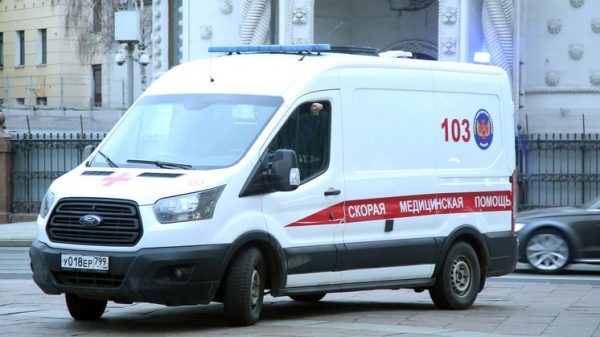Germany is weighing up following Austria and Bavaria’s lead in making it compulsory to wear full protective filter masks on public transport and in shops, as the country remains on high alert about the impact of possible coronavirus mutations.
The Austrian chancellor, Sebastian Kurz, announced on Sunday that wearing single-use filtering facepiece respirator, or FFP2, masks would become mandatory on public transport and in shops from 25 January, as the Alpine state moves to extend its national lockdown until 7 February.
In Germany’s largest and southernmost state, Bavaria, a similar requirement for trains, trams, buses and supermarkets came into force on Monday, though the new rule will not be policed until 24 January and allows for exemptions for bus drivers, ticket inspectors and children under the age of 15.
face mask and a FFP2 respirator mask graphic
The German chancellor, Angela Merkel, and the heads of the country’s 16 federal states are expected to discuss following the Bavarian blueprint at a summit on Tuesday in spite of a recent reduction of infection rates. A night-time curfew and new remote-working requirements could also accompany an expected extension of the lockdown into February.
German Covid vaccine officials play name game to comply with data privacy laws
Read more
When fitted properly, FFP2 masks promise to filter out at least 94% of particles but are also more expensive, usually retailing at between €2 and €5 per mask. If FFP2 masks were made mandatory before suppliers are unable to meet the new demand, prices are expected to rise further. Some virologists warn a new compulsory mask rule could end up being counterproductive.
“In theory, the move to more professional masks is welcome,” said Jonas Schmidt-Chanasit, a German virologist and Professor of Arbovirology at the University of Hamburg. “But I’d be wary of simply copying the Bavarian model without considering the possible downsides.
“In most cases FFP2 masks will be ineffective if they aren’t professionally fitted: people will end up breathing through the gap between mask and face rather than through the designated filter.” Virologists also say that beards can prevent the masks from sealing properly around the face.
“I can see how FFP2 masks could be a useful emergency solution for workplaces where you cannot easily guarantee safety ventilation,” Schmidt-Chanasitsaid. “But I am sceptical of making them mandatory on public transport, where there are other ways to avoid the risk of aerosols, and where passengers may be forced to wear masks for longer than the 75 minutes advised by regulatory authorities.”
Andreas Podbielski, director of Rostock University’s Institute of Medical Microbiology, Virology and Hygiene, described the new mask requirement at “populism and nonsense”. “I don’t see a gain in safety but plenty of risks,” he told Munich’s Abendzeitung newspaper.
Questions around the availability of FFP2 masks, which are equivalent to N95 filtering facepiece masks in the United States and the KN95 standard in China, have also yet to be answered.
In Germany, the government has since 15 December sent out vouchers for FFP2 masks to 34.1 million citizens aged over 60 or with a history of illness such as cancer, with the aim of supplying 15 masks to every person in that category before the end of January.
A spokesperson for the Federal Union of German Associations of Pharmacists said its members had so far coped well with the demands of this trial run. “But to supply filter masks to 80 million people, that’s a different challenge. I wouldn’t want to speculate on the outcome.”
While some German suppliers have started to specialise in manufacturing FFP2 respirators, the bulk of masks is made in China and can take up to four weeks to deliver.
Germany’s disease control agency, the Robert Koch Institute, on Monday reported 7,141 new infections in the last 24 hours, the lowest rate since 20 October. “After a sharp increase in the number of cases at the beginning of December, a decrease during the holidays and a renewed increase in the first week of January, the number of cases seems to be stabilising again,” the RKI wrote in its report on Sunday evening.
But Germany remains well below its stated target of 50 new infections per 100,000 inhabitants within the space of seven days, in spite of several weeks of restrictions. “The numbers need to come down further”, the health minister, Jens Spahn, said on Monday.



















































Свежие комментарии